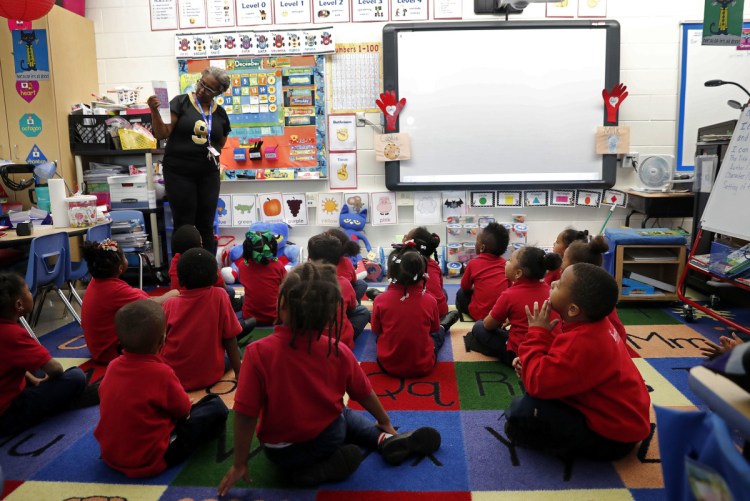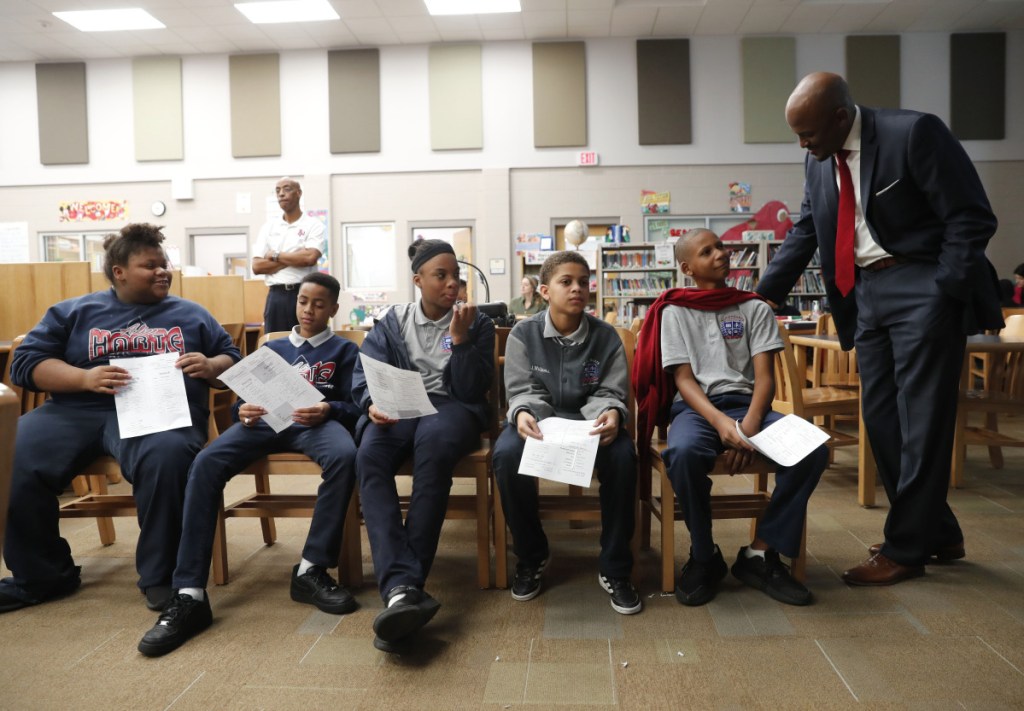Amid fierce debate over whether charter schools are good for black students, the heirs to the Walmart company fortune have been working to make inroads with advocates and influential leaders in the black community.
The Walton family, as one of the leading supporters of America’s charter school movement, is spreading its financial support to prominent and like-minded black leaders, from grassroots groups focused on education to mainstream national organizations such as the United Negro College Fund and Congressional Black Caucus Foundation, according to an Associated Press analysis of tax filings and nonprofit grants data.
“Those closest to the challenge often have the best solution,” said Marc Sternberg, who leads the Walton Family Foundation’s education efforts.
Charter schools, which are publicly funded and privately operated, are often located in urban areas with large back populations, intended as alternatives to struggling city schools. Black enrollment in charters has doubled over the course of a decade, to more than 760,000 students as of 2015-16, according to the latest federal data, but the rise also has been marked by concerns about racial segregation, inconsistent student outcomes, and the hollowing-out of neighborhood public schools.
While some black leaders see charters as a safer, better alternative in their communities, a deep rift of opinion was exposed by a 2016 call for a moratorium on charters by the NAACP, a longtime skeptic that expressed concerns about school privatization, transparency and accountability issues. The Black Lives Matter movement is also among those that have demanded charter school growth be curbed.
When NAACP leaders gathered to discuss charters in 2016, a group of demonstrators led the Cincinnati hotel to complain to police that they were trespassing. The three buses that brought the 150 black parents from Tennessee on the 14-hour road trip were provided by The Memphis Lift, an advocacy group that has received $1.5 million from the Walton foundation since 2015.
Deidra Brooks, chief of staff for The Memphis Lift, said they were not asked by Walton to carry out the protest and declined to say how much of their budget came from the foundation. The start-up advocacy group seeded by Walton money also provides parents school choice counseling and advocacy training.
Like U.S. Education Secretary Betsy DeVos, Microsoft co-founder Bill Gates and many other deep-pocketed billionaire philanthropists, the Walmart heirs – one of America’s richest families – embrace charter schools and education reform as an avenue to help the neediest. The Walton foundation is in the midst of a $1 billion pledge dedicated largely to expanding charters, which they see as investments to find better ways to educate those who struggle in traditional school systems.
Andre Perry, an education policy expert at the Brookings Institution, said the Walton foundation’s reliance on black faces to makes its case for charters suggests that they’re exploiting black people for a “white agenda.”
“It’s a sad thing that education reform is about how much money you have and not about what connection you have with black communities,” Perry said.
Much of the $9 million granted to the United Negro College Fund has been spent on the scholarship organization’s fellowship program for students interested in education reform. Likewise, the foundation gave $170,000 in recent years to the Congressional Black Caucus Foundation for its events, while the Waltons also sponsor an affiliated education policy advocacy and campaign training workshop.
Walton money totals nearly $2 million to the 100 Black Men of America campaign and $7.3 million to the National Urban League. Both groups have strong ties to charter schools on the ground.
The Waltons have given small amounts to other kinds of black community groups as well, including the New England Blacks in Philanthropy organization, the Association of Black Foundation Executives and the National Black Child Development Institute.
And this year, the foundation sponsored a luncheon at a Detroit conference for the National Association of Black Journalists.
Send questions/comments to the editors.




Success. Please wait for the page to reload. If the page does not reload within 5 seconds, please refresh the page.
Enter your email and password to access comments.
Hi, to comment on stories you must . This profile is in addition to your subscription and website login.
Already have a commenting profile? .
Invalid username/password.
Please check your email to confirm and complete your registration.
Only subscribers are eligible to post comments. Please subscribe or login first for digital access. Here’s why.
Use the form below to reset your password. When you've submitted your account email, we will send an email with a reset code.